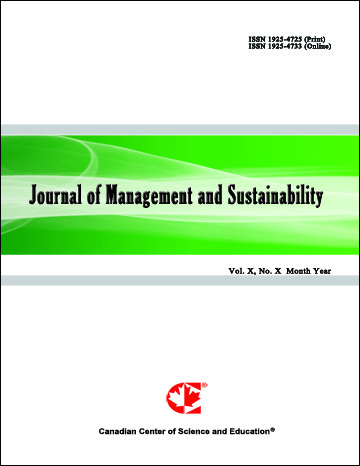Organizational Learning Towards Sustainability in Higher Education Institutions: A Brazilian Case Study
- Vanessa de Campos Junges
- Simone Alves Pacheco de Campos
- Rúbia Goi Becker
- Daniele Medianeira Rizzetti
Abstract
Universities should be dedicated to providing an education that fosters social transformation by interrelating the environmental, social, and economic dimensions. This article asserts that a truly sustainable university extends beyond merely “greening” the campus—it emphasizes sustainability across all core processes, be it in education, management, research, or community relations. The primary aim of this study is to delve into organizational learning and sustainable management processes, drawing inspiration from the I3E model introduced by Cebrian (2016). A qualitative case study was undertaken at a Brazilian federal university listed in the UI GreenMetric World University Rankings to achieve this. The research thoroughly examined institutional documents and interviews with managerial staff to discern strategic decisions, sustainable initiatives, and best practices. The findings suggest that the journey towards learning for sustainability is riddled with challenges, such as a paucity of commitment, communication gaps, ineffective leadership, distrust within the institution, limited funding, conflicting interests among various groups and individuals, and the burden of rigid bureaucratic protocols. However, facilitating factors have also been identified, including reshaping pre-existing mental models, a genuine interest in learning, and a conducive organizational framework. This research enriches the existing discourse on sustainability and organizational learning and offers a comprehensive and interconnected perspective on these topics. Additionally, it delivers valuable insights for academic administrators aspiring to craft a blueprint for a sustainable university. It does so by addressing overarching challenges and placing the components of the institutional management model in context, thereby offering direction for sustainable core processes in areas such as teaching, research, outreach, and management.
- Full Text:
 PDF
PDF
- DOI:10.5539/jms.v13n2p156
Journal Metrics
Google-based Impact Factor (2021): 1.54
h-index (July 2022): 37
i10-index (July 2022): 147
h5-index (2017-2021): 12
h5-median (2017-2021): 19
Index
- Academic Journals Database
- ANVUR (Italian National Agency for the Evaluation of Universities and Research Institutes)
- CAB Abstracts
- CNKI Scholar
- EconBiz
- Excellence in Research for Australia (ERA)
- GETIT@YALE (Yale University Library)
- Harvard Library
- HeinOnline
- Infotrieve
- JournalTOCs
- LOCKSS
- MIAR
- PKP Open Archives Harvester
- RePEc
- Scilit
- SHERPA/RoMEO
- Stanford Libraries
- UCR Library
Contact
- Evelyn XiaoEditorial Assistant
- jms@ccsenet.org
